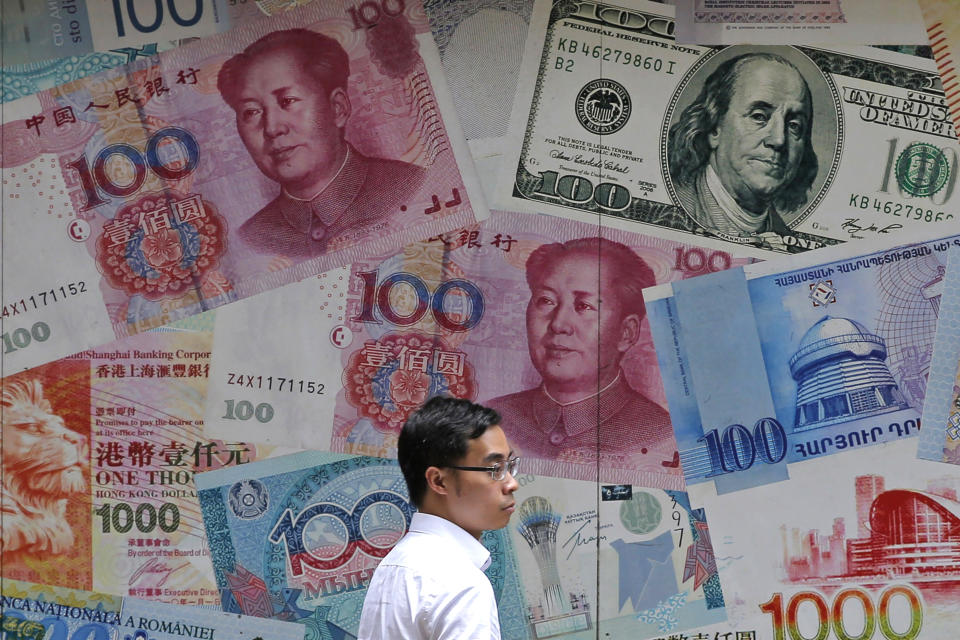'It doesn’t matter': China reacts to the devaluation of yuan
As China’s currency fell past the key point of 7 yuan per U.S. dollar (USDCNY=X) for the first time in 11 years, the country’s central bank spoke out, calling for calm and confidence.
In a rare public statement, the People’s Bank of China (PBoC) published a series of statements on its website to communicate about yuan crossing the 7 level, in an effort to assure the market. It acknowledged the impact of the ongoing trade tension between the U.S. and China and President Donald Trump’s latest move to impose additional 10% tariffs on $300 billion worth of imported goods from China, but reiterated that it wouldn’t weaponize the exchange rate.

“The 7 is not the age that once you cross you can never come back,” PBOC said in a statement on Monday. “PBoC has accumulated rich experience and policy tools, and will continue to innovate and enrich the toolbox...The People's Bank of China has the experience, confidence and ability to keep the RMB exchange rate basically stable at a reasonable and balanced level.”
Meanwhile, Trump slammed China for allowing its yuan to weaken below a key level in a tweet on Monday morning, calling it “currency manipulation” and asked the Federal Reserve to take note.
Yi Gang, governor of China’s central bank, insisted the fluctuation is driven by the market and promised China will let the market decide the exchange rate.
“As a responsible major country, China will abide by the spirit of the G20 summit on the exchange rate issue and adhere to the market-determined exchange rate system. We will not engage in competitive devaluation, or use the exchange rate for competitive purposes. Neither will we use the exchange rate as a tool to deal with external pressure such as trade disputes,” Yi said on Monday.
China unlikely ‘to turn to devaluation as a weapon’
As China has pushed to build a market-based currency system in the past few years, in which the currency is managed against a basket of currencies to keep it in line with an equilibrium that reflects fundamentals, PBoC will intervene if the market takes it too far away from “fundamentals.” It remains to be seen how long the PBoC will refrain from interfering as the impact of Trump’s tariffs becomes full-blown.
“We do not expect China to turn to devaluation as a weapon in the trade war. In our view, the costs would be too high and China wants to be seen as ‘responsible’,” wrote Allan von Mehren, chief analyst at Danske Bank on Monday.
Domestic investors already feel pain. China’s Shanghai stock market has tumbled by 3% since Trump’s tweet on tariffs Friday, although most coverage on the selloff has been censored in China. On social media, people voiced concerns about the yuan devaluation putting pressure on the housing and the economic downturn, as state-owned media is trying to normalize the rate move and boost confidence in the domestic economy.
“Our confidence is as firm as a rock, so it doesn’t matter that yuan breaks the 7 level,” China’s state-run news agency Xinhua wrote in an editorial on Monday. “The economy and financial system are robust, which provides strong support for the foreign exchange market and the yuan exchange rate to maintain reasonable stability.”
Krystal Hu covers technology and China for Yahoo Finance. Follow her on Twitter.
Follow Yahoo Finance on Twitter, Facebook, Instagram, Flipboard, SmartNews,LinkedIn, YouTube, and reddit.


